To accompany your Come Follow Me study for September 22-28
In addition to reading these sections you will want to read:
- Chapter 42: Doctrine and Covenants 106–108 (churchofjesuschrist.org)
- Joseph Smith’s Revelations, Doctrine and Covenants 106 (churchofjesuschrist.org)
- Joseph Smith’s Revelations, Doctrine and Covenants 107 (churchofjesuschrist.org)
- Joseph Smith’s Revelations, Doctrine and Covenants 108 (churchofjesuschrist.org)
- “Restoring the Ancient Order,” Revelations in Context, 208–12.
- “Warren Cowdery,” Revelations in Context, 219–23 at https://www.churchofjesuschrist.org/study/manual/revelations-in-context/warren-cowdery?lang=eng
- “Wrought Upon’ to Seek a Revelation,” Revelations in Context, 224–28.
You may also enjoy the following videos:
If you would like a Kahoot game related to these sections which you could use with your family or your class, click here: https://create.kahoot.it/share/doctrine-and-covenants-106-108/c99dd578-868f-406f-b413-92c91e56cb3a. To use it with a group, after clicking on this link, you will need to log into Kahoot, creating a free account if you have not done so previously, then click on the blue “Host Live” button or the gray “Assign” button, depending on how you wish to use the Kahoot. Some of the Kahoot questions may presuppose that the player has read through the suggested answers to the following Points to Ponder and at least has browsed the Institute student manual as well.
Points to Ponder in Doctrine and Covenants 106-108
1. What to you is the most important idea in D&C 106 that you could apply in your life?
2. What other applications could you suggest for the principle which led to our calling the higher priesthood the Melchizedek Priesthood rather than the Holy Priesthood after the Order of the Son of God?
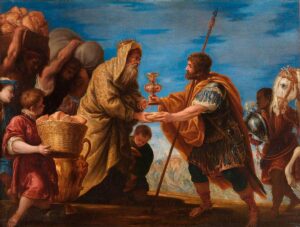
3. In brief, according to D&C 107, what is the essential difference between the nature of Melchizedek Priesthood responsibilities and those of the Aaronic Priesthood?
4. What are the “outward ordinances” that are the responsibility of the lesser priesthood? Does this mean that the high priesthood is in charge of “inward ordinances”? Explain.
5. What five Church bodies are said in D&C 107 to be all equal in authority?
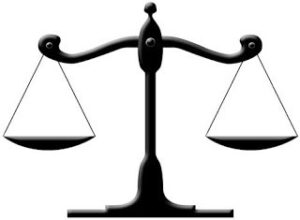
6. If the above are all equal, how do we or they know who should take the lead in Church matters? What does this “equality” really mean?
7. In view of the importance the Lord attaches to unanimity (107:27), what should a member of a council do if he genuinely has a different opinion from the other members–pretend to agree for the sake of unanimity or continue to voice his own feelings?
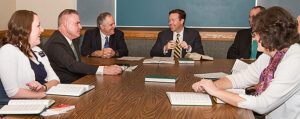
8. Of what significance to us is the information in 107:53-57?
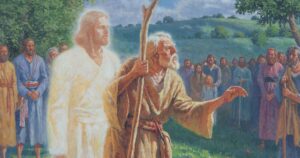
9. What clarification does D&C 107 make to the biblical account of Enoch?
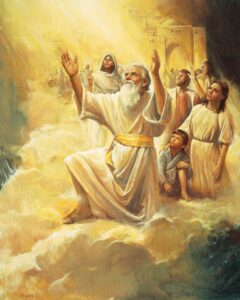
10. Can you think of any possible reasons for the increasingly large size of priesthood quorums from deacon to elder?
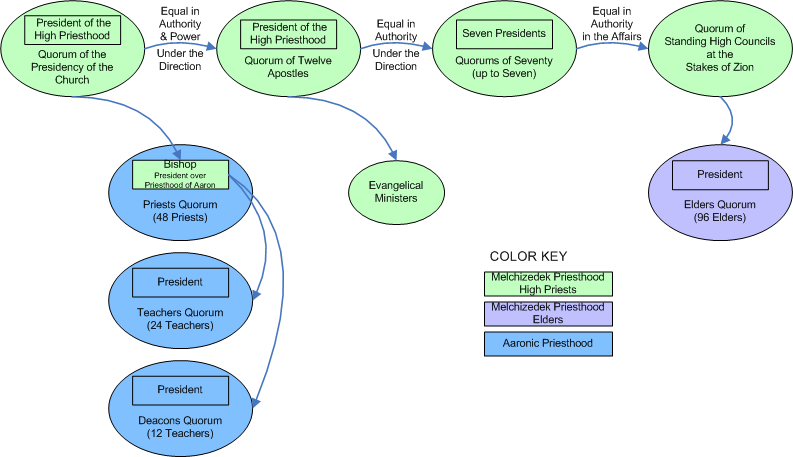
11. According to D&C 107, who is to take the initiative to make sure each priesthood officer is properly trained in his duties?
12. Where does it suggest our forgiveness from the Lord could depend on our willingness to watch and pay attention to General Conference?
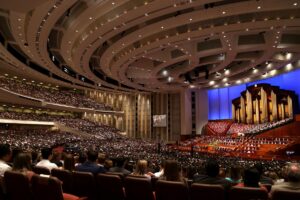
13. What counsel given to Lyman Sherman in D&C 108 do you consider most applicable to you personally at this time of your life?
Possible Answers to Points to Ponder in Doctrine and Covenants 106-108
1. What to you is the most important idea in D&C 106 that you could apply in your life?
Your choice. Possibilities could include:
- Seek diligently the kingdom of heaven and its righteousness
- Be prepared so as to be a child of the light and not be surprised by events related to the Second Coming.
- Humble ourselves
- Continue to be a faithful witness and light to the Church
2. What other applications could you suggest for the principle which led to our calling the higher priesthood the Melchizedek Priesthood rather than the Holy Priesthood after the Order of the Son of God?
We ought to be careful in our use of the names of Deity, which are sacred. Obviously, we would not indulge in profanity. Perhaps neither would we find it necessary to mention God’s name more than once in our prayers to Him, nor lightly use His name otherwise when a more oblique reference would suffice. On the other hand, President Nelson has emphasized the importance of calling the Church by it’s full and correct name rather than refer to it as the ”Mormon” Church. So, it is obviously possible to repeat the name of God or His Son either too frequently or too infrequently.
3. In brief, according to D&C 107, what is the essential difference between the nature of Melchizedek Priesthood responsibilities and those of the Aaronic Priesthood?
The Aaronic Priesthood has temporal functions which are well delineated. For example, the words of the sacrament prayers and the baptismal prayer are spelled out, and no young priest has to invent them each time. The Melchizedek Priesthood has spiritual functions, and inspiration is needed to know how to properly give a priesthood blessing, preside over a ward or branch, lead a family, or to know what words to say beyond the essentials when confirming a new member or ordaining one to the priesthood, etc.
4. What are the “outward ordinances” that are the responsibility of the lesser priesthood? Does this mean that the high priesthood is in charge of “inward ordinances”? Explain.
The “outward ordinances” of which the Aaronic Priesthood is in charge, are actions which can be seen. For example, the blessing and passing of the sacrament, baptism, ancient sacrifices, etc. While we don’t use the term “inward ordinances,” it may not be a bad way to think of Melchizedek Priesthood functions. They require inspiration in the heart and mind, as mentioned in point 3 above, to know how to properly carry them out.
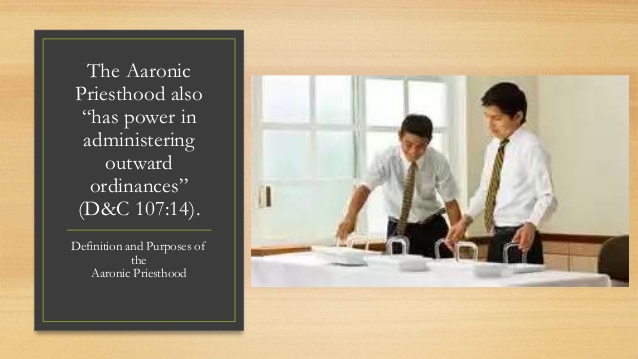
5. What five Church bodies are said in D&C 107 to be all equal in authority?
- First Presidency
- Quorum of the 12 Apostles
- The Seventy
- Standing high councils at the stakes of Zion
- High council in Zion
6. If the above are all equal, how do we or they know who should take the lead in Church matters? What does this “equality” really mean?
This “equality” is to some extent just dormant as long as the President of the Church is alive. He presides over all other members and officers. The First Presidency directs the Quorum of the Twelve, who in turn direct the Seventy. High councils (and stake presidencies) receive instruction from any of the above. In a sense, all have “equal” authority in that all operate by the power of the Melchizedek Priesthood and all represent the same God. But there is a clearly defined hierarchy of Church government.
But each member of the 12 has all keys of the kingdom bestowed upon him at the time of his ordination as an apostle. They are latent until such time as he becomes the senior apostle and the President dies, at which time the senior apostle already holds all necessary keys to reorganize the First Presidency and continue to lead the Church without the need for additional conferral of authority.
Furthermore, Joseph F. Smith, taught:
“If the Presidency were to be killed off, then the Council of the Twelve Apostles would stand in their place and preside until the Presidency should be restored; and if they and the First Presidency were all killed off, then the seventies would come forward and they would establish the order of Zion and renew the order of the priesthood upon the earth; and if all the seventies were killed off, and yet there was one elder possessing the Melchizedek Priesthood, he would have authority to organize the Church, under the command of God and the guidance of His Holy Spirit, as Joseph did in the beginning; that it should be re-established in its perfect form. So you can see that this organization is well-nigh undestructible.”
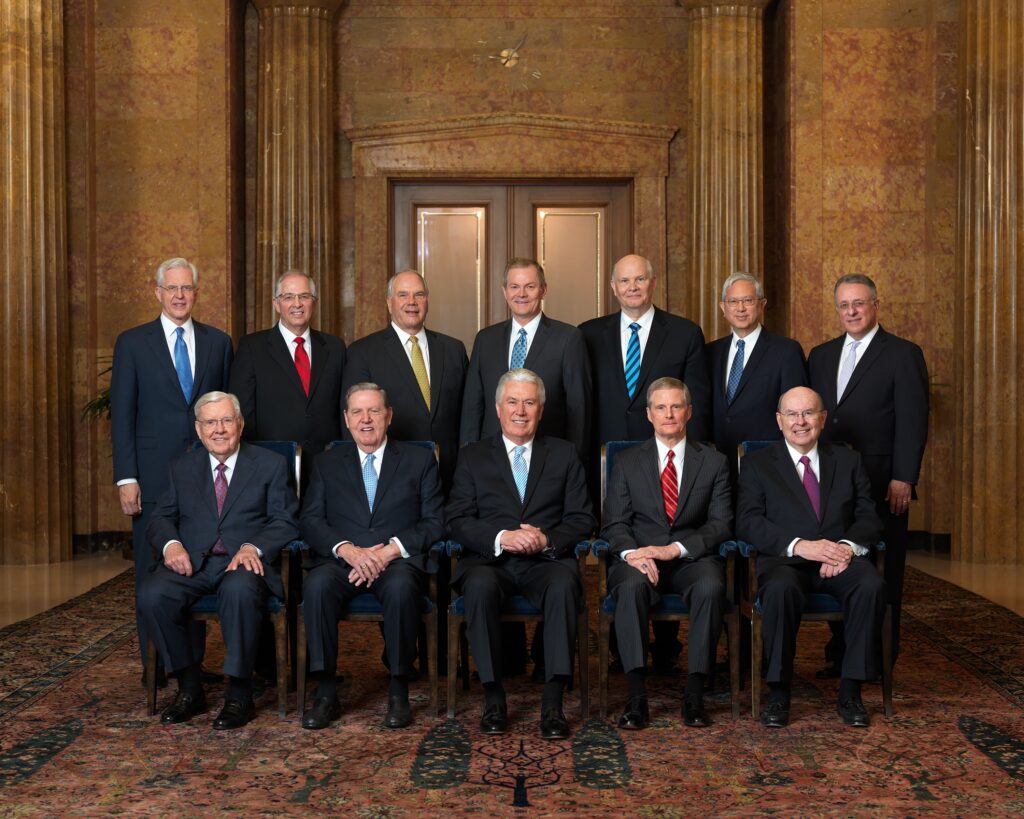
7. In view of the importance the Lord attaches to unanimity (107:27), what should a member of a council do if he genuinely has a different opinion from the other members–pretend to agree for the sake of unanimity or continue to voice his own feelings?
Ideally, discussion would continue and new facts would be brought forth until unanimity were achieved. Practically, if the issue is of lesser consequence, counselors or councilors will typically subordinate their own opinions to that of the president and promote the group decision as if it were their own.
8. Of what significance to us is the information in 107:53-57?
- It shows something of the greatness of our first parent.
- It shows something of the blessings and responsibilities of an eternal family.
- It shows a model for family reunions.
- It shows the favored status of this continent as the place where civilization began.
- It shows that there is more scripture yet to come forth.
9. What clarification does D&C 107 make to the biblical account of Enoch?
It clarifies that Enoch didn’t live only 365 years, but 365 years from the time he established Zion, for a total of 430 years.
10. Can you think of any possible reasons for the increasingly large size of priesthood quorums from deacon to elder?
The Lord has not revealed the reason, so one person’s speculation may be as good as another’s. Perhaps it is assumed that the talents of a new priesthood leader, such as a deacon’s quorum president, are better suited to presiding over a smaller number of associates than those of the presumably more mature and spiritually skilled elders’ quorum president.
11. According to D&C 107, who is to take the initiative to make sure each priesthood officer is properly trained in his duties?
Each individual is be proactive and “learn” his duty, not wait until someone else takes the initiative to teach him.
12. Where does it suggest our forgiveness from the Lord could depend on our willingness to watch and pay attention to General Conference?
108:1
13. What counsel given to Lyman Sherman in D&C 108 do you consider most applicable to you personally at this time of your life?
Your choice. Possibilities would include:
- Be at rest concerning your spiritual standing.
- Don’t resist the voice of the Lord.
- Be more careful in keeping your covenants.
- Wait patiently (for whatever thing you are overly eager).
- Strengthen your brethren (or sisters) in all you say and do and pray for them.
